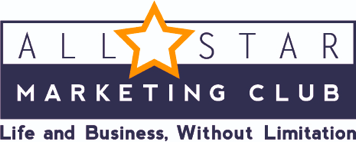In this article, we look at HubSpot versus Mailchimp and come to a conclusion as to what you should use within your Small Business marketing.
Both HubSpot and Mailchimp are popular marketing automation tools for small businesses that offer a range of features to help you manage your marketing campaigns.
HubSpot is a comprehensive marketing and sales software that offers a range of features such as email marketing, social media management, customer relationship management (CRM), landing pages, and marketing analytics. It is an all-in-one solution that can help businesses manage their entire sales and marketing process in one platform. However, it is a bit more complex to use (it has a heck of a lot of features) and can be expensive for small businesses.
Mailchimp, on the other hand, is a popular email marketing tool that offers features such as email automation, email templates, landing pages, social media management, and basic analytics. It is more straightforward and user-friendly, making it an excellent option for small businesses with limited marketing experience or budget – and it’s most certainly one of our favourites when you’re starting out in marketing. It can also get costly when you have a large volume of data, and you want some of the more advanced features, but on the whole, the cost is incredibly low (and free for very basic) when you don’t have much data to work with.
So Hubspot versus Mailchimp – which is the best to opt for?
Let’s take a deeper dive into HubSpot first…
HubSpot offers a wide range of features that can be beneficial for small businesses, including:
- Marketing automation: HubSpot’s marketing automation tools allow small businesses to automate their marketing processes and campaigns, saving an incredible amount of time and resource. Businesses can create and send targeted emails, automate social media posts, and create custom landing pages to capture leads and nurture them.
- CRM: HubSpot’s CRM is a powerful tool for managing customer data, tracking interactions, and analysing customer behaviour. It enables small businesses to organise their sales pipeline, manage deals, and track customer interactions all in one place.
- Lead generation: HubSpot’s lead generation tools help small businesses attract and capture leads. The platform provides forms and pop-ups that can be added to a website, making it easy for visitors to provide their contact information that can be nurtured into a sale, over time.
- Analytics: HubSpot’s analytics tools provide valuable insights into the effectiveness of a small business’s marketing efforts. It allows businesses to track website traffic, monitor social media engagement, and analyse the performance of marketing campaigns. ‘Hubspot Score’ is a tool that can be set up and used to indicate when a lead is a lot warmer.
- Sales automation: HubSpot’s sales automation tools can help small businesses manage their sales processes more efficiently. Businesses can track deals, schedule meetings, and automate follow-up emails.
- Integration: HubSpot can integrate with a wide range of other tools, such as CRMs, email marketing tools, and social media platforms, allowing small businesses to streamline their marketing and sales processes.
In a nutshell, HubSpot offers a comprehensive suite of tools that can help small businesses automate their marketing and sales processes, generate leads, and analyse their performance, making it an excellent choice for businesses looking for an all-in-one solution.
So, what about Mailchimp?
Mailchimp is an increasingly popular email marketing tool, that has developed immensely over time, to become a rival to many of the big CMR solutions. Here are some of the benefits for small businesses:
- Email marketing: Mailchimp offers a range of email marketing features, including customisable email templates, A/B testing, and segmentation. This allows small businesses to create and send targeted email campaigns to their subscribers, increasing engagement and conversions.
- Automation: Mailchimp’s automation features enable small businesses to set up automated email campaigns based on subscriber behaviour, such as welcome emails, abandoned cart reminders, and birthday emails. This can save time and resources while providing a personalised experience for subscribers.
- Landing pages: Mailchimp offers a simple drag-and-drop landing page builder that can be used to create custom landing pages for marketing campaigns. This can help small businesses to capture leads and promote their products or services – a must for all small businesses.
- Social media integration: Mailchimp integrates with popular social media platforms, such as Facebook and Instagram, allowing small businesses to promote their campaigns across multiple channels.
- Analytics: Mailchimp’s analytics features provide valuable insights into the performance of email campaigns, allowing small businesses to track open rates, click-through rates, and conversion rates. Like Hubspot, it also scores your leads, so you can easily identify those that are highly engaged.
- Integrations: Mailchimp integrates with a wide range of other tools, such as e-commerce platforms and CRM systems, allowing small businesses to streamline their marketing and sales processes.
In essence, Mailchimp is an easy-to-use email marketing tool that offers a range of features to help small businesses increase engagement, conversions, and sales while saving time and resource.
Ultimately, the choice – HubSpot versus Mailchimp – will depend on the specific needs of your business.
If you require a comprehensive marketing automation tool with a range of features and have a larger budget, HubSpot may be the better choice. But if you only need email marketing and want a more affordable and easy-to-use tool, Mailchimp would be a good option.
Not sure? Email info@allstarmarketingclub.com and ask!











